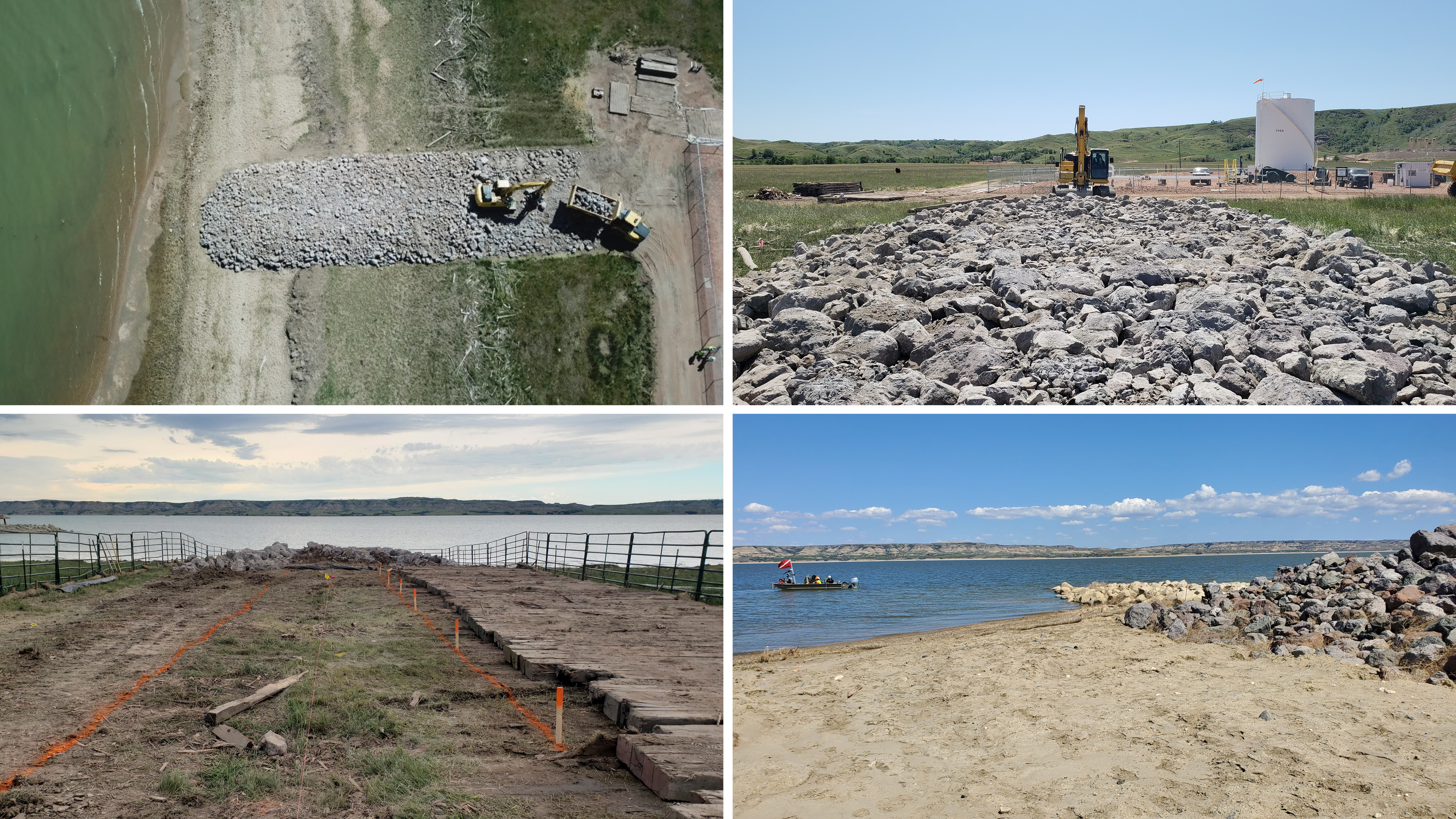Challenge
With a strong focus on sustainability and commitment to investing in safeguarding the environment, Marathon Petroleum Corporation took on the crucial responsibility of evaluating and resurfacing an existing pipeline that crosses Lake Sakakawea in North Dakota. As the third largest man-made reservoir in the U.S., the complex project faced significant challenges including difficult terrain, bank erosion issues, environmental concerns, and intense wave currents.
Solution
Building on more than a decade of collaboration on a variety of projects, Marathon Petroleum partnered with SEH in 2018 to conduct an environmental assessment for the Lake Sakakawea pipeline. The project involved assessing and resurfacing the 12-inch pipeline that traverses challenging terrain and crosses Lake Sakakawea, approximately 75 miles upstream from Bismarck, North Dakota. The two miles of pipeline had experienced significant wind and wave action over the years, and its evaluation was a vital step to maintain the pipeline on the north and south shore of Lake Sakakawea while ensuring environmental protection and safety.
Over the course of four years, the team worked diligently to address the challenges posed by the pipeline's location and its impact on the lake's ecosystem. Part of the assessment involved deploying divers to evaluate the underwater condition of the pipeline, which helped provide accurate cost assessments for budgeting purposes. Considering the unique conditions of Lake Sakakawea, the team had to carefully navigate significant wave heights and potential hazards during diving operations.
Environmental protection, with a special emphasis on safeguarding the rare and elusive piping plover birds along the shoreline, remained a top priority throughout the project. Knowing this was a prime nesting location, the team conducted daily morning inspections to make sure no birds were impacted during construction.

Securing permits and negotiating with the U.S. Army Corps of Engineers (USACE) were also crucial coordination elements, highlighting the team's commitment to environmental responsibility and ensuring the pipeline's long-term safety and operational integrity.
Despite facing adverse drought conditions during permitting, the team leveraged the lowered lake water level to conduct certain aspects of the work using land-based equipment, resulting in significant time and cost savings. This approach was also deemed safer compared to diving operations in the lake.
The team employed innovative approaches for pipeline shore protection. Utilizing cement bags and large granite rocks, they addressed mechanical protection issues on the south side of the pipeline, ensuring its stability and minimizing environmental impact.
Central to the project's success was effective communication through daily onsite meetings, weekly engineering team sessions, and regular updates for all key stakeholders. This proactive approach, addressing challenges and maintaining a clear project schedule, played an important role in ensuring safe and seamless progress. Through careful consideration and collaboration with local Native American tribes, Marathon Petroleum Corporation also demonstrated a commitment to meeting the desires of the community while completing the project safely and responsibly.
The construction phase was completed in 2023, and ongoing evaluation with the USACE continues to ensure the pipeline's functionality and environmental integration are up to standards.
Project
Lake Sakakawea Pipeline Resurface
Location
Williams and McKenzie Counties, North Dakota
Client
Marathon Petroleum Corporation
Features
- Pipeline crosses third-largest man-made reservoir in nation
- Innovative pipeline shore protection using cement bags and granite rocks
- Daily inspections safeguarded nesting piping plover birds
- Permitting and negotiations with USACE emphasized environmental responsibility
- Addressed elevation issues on south end
- Evaluated wind speed, direction, and other conditions impacting wave climate
Services
- Civil engineering
- Construction services
- Geotechnical engineering
- Natural resource scientists
- Survey

.png?width=113&name=SEH_Logo_RGB%20(1).png)
